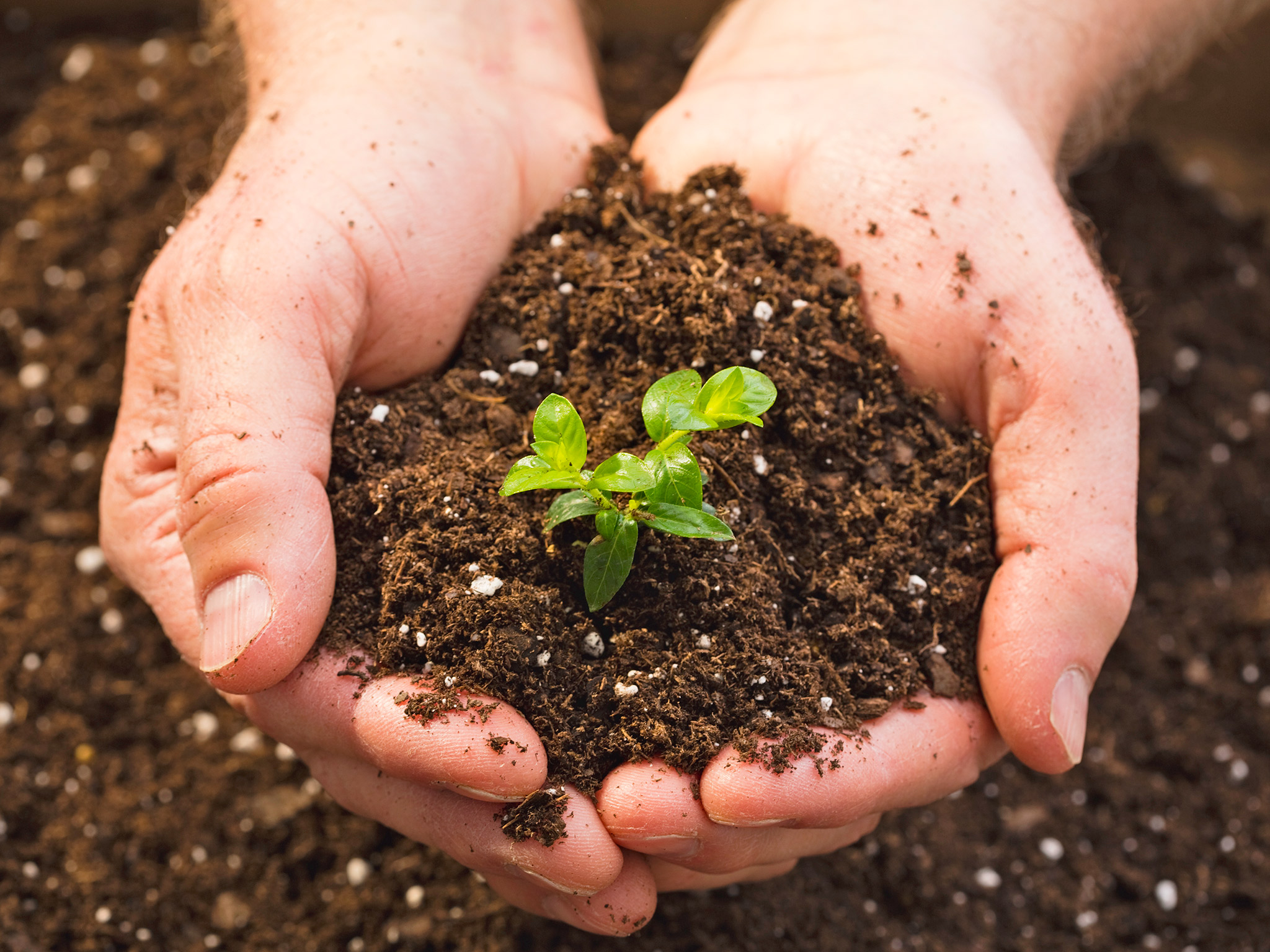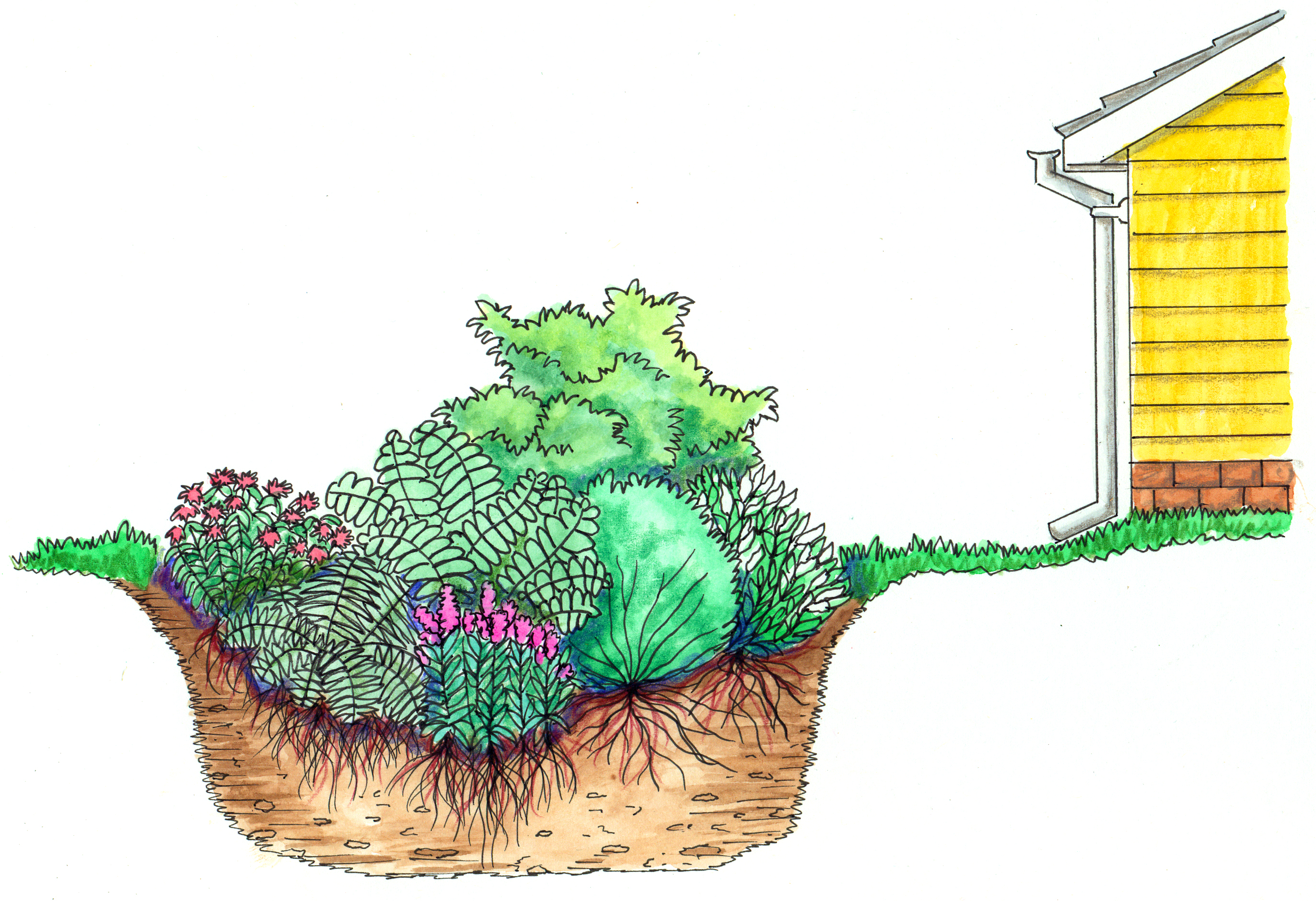WHY IS SOIL HEALTH IMPORTANT?
Soil is critical to the success of sustainable gardens, and it provides important environmental benefits. Using sustainable gardening practices can help us restore the benefits our soils provide. Modern industrial society has left much of the Earth’s soil eroded, exhausted and polluted. Many unsustainable gardening practices, like applying too much fertilizer or compacting soil, have unwittingly contributed to the problem. The good news is it’s not too late! The health of our soils can be restored, and even enhanced, through the implementation of sustainable gardening techniques. Soil is a valuable resource–nature can take more than 500 years to form just one inch of topsoil.
Soil is the foundation of a sustainable garden. It provides a variety of benefits, often without our knowing, including:
- Absorbing rainfall and mitigates flooding
- Removing pollutants and cleanses water
- Storing water for plants, wildlife and people
- Providing habitat for organisms such as microscopic bacteria and earthworms that transform wastes into nutrients for plants.
- Storing atmospheric carbon
- Sustaining plants, which provides food, fiber for clothing, timber, medicines and other goods


GET STARTED WITH SOILS
No Results Found
The page you requested could not be found. Try refining your search, or use the navigation above to locate the post.
DIG DEEPER
Landscape For Life offers training for people who want to go the next level and teach others about how to create sustainable landscapes. Webinars from the training are open to the public and available by clicking on the links to the right.
Want to learn more about becoming a Landscape For Life teacher? Click here.
Landscape For Life™ was developed by United States Botanic Garden and the Lady Bird Johnson Wildflower Center, based on the principles of the Sustainable Sites Initiative (SITES®). The program is now a collaboration between Colorado State University Extension and the United States Botanic Garden.




